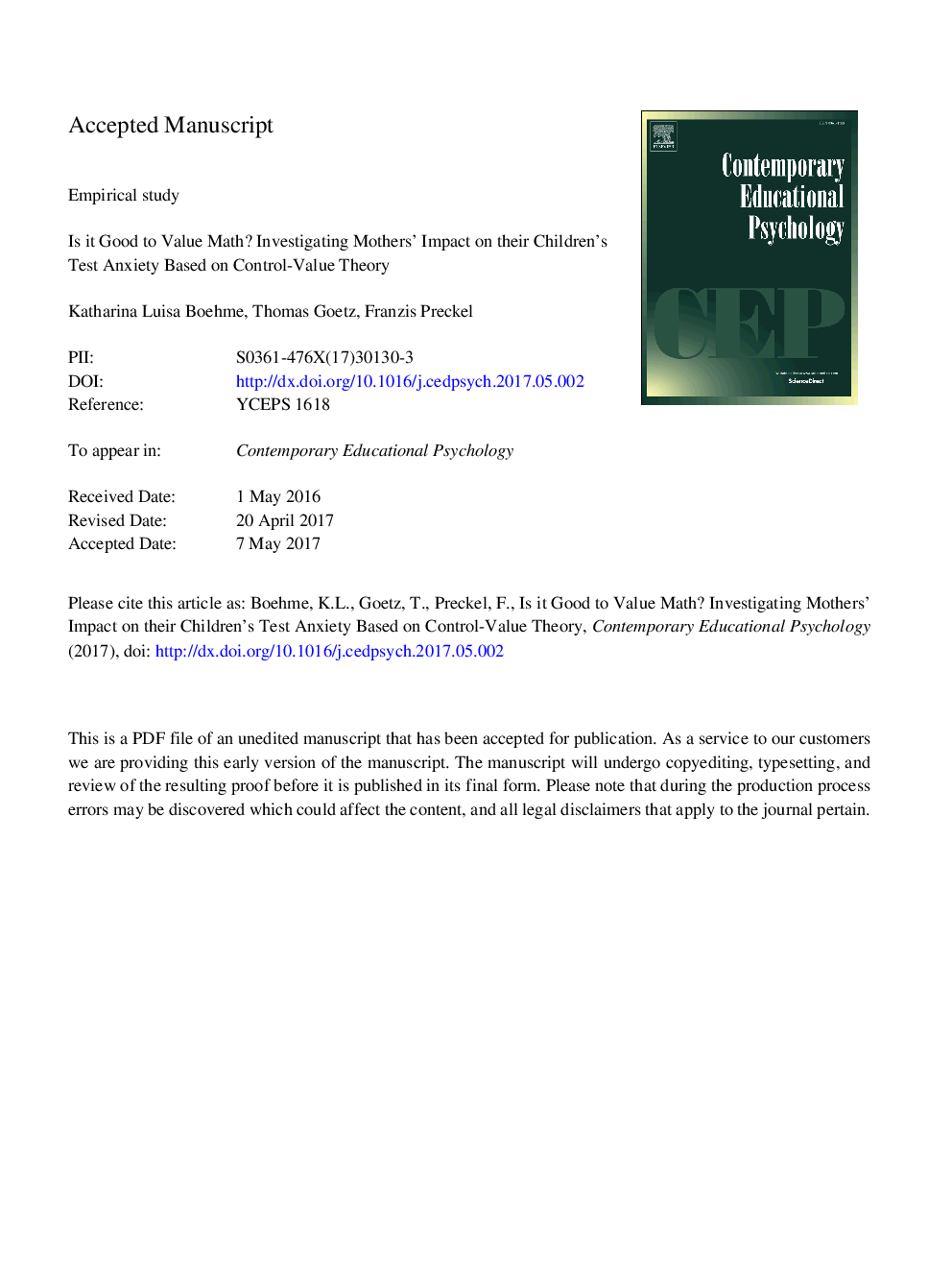| Article ID | Journal | Published Year | Pages | File Type |
|---|---|---|---|---|
| 4937841 | Contemporary Educational Psychology | 2017 | 46 Pages |
Abstract
The present study investigated individual and social antecedents of test anxiety. Based on Pekrun's (2006) control-value theory of achievement emotions, we studied the relationship of students' test anxiety with students' control and value cognitions, the interaction of control and value cognitions, and parent-reported family valuing of mathematics. The sample consisted of 356 German 5th graders and their mothers. In line with theoretical assumptions, results of structural equation modeling showed that, when modeled together, control cognitions (i.e., academic self-concept) were negatively related to test anxiety while value cognitions (i.e., interest) showed a positive relationship. The significant interaction between control and value revealed that value was strongly related to test anxiety when subjective control was low and only weakly related to test anxiety when subjective control was high. High family values of mathematics were positively related to test anxiety. In addition, family values showed two indirect relations with test anxiety which were in opposite directions: Highly valuing math in families reduced students' test anxiety by enhancing their control cognitions, and at the same time increased students' test anxiety by enhancing students' value cognitions. The overall indirect effect was a reduction in test anxiety, which shows that the anxiety-reducing effect via students' control perceptions was stronger than the anxiety-enhancing effect via students' value cognitions.
Related Topics
Social Sciences and Humanities
Psychology
Applied Psychology
Authors
Katharina Luisa Boehme, Thomas Goetz, Franzis Preckel,
